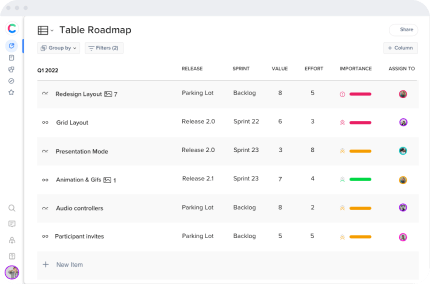What is program management?
Program Management is bringing several separate initiatives together under a single management umbrella. Consequently, the initiatives are grouped since they are all tied together by a single guiding strategic purpose. Program management is becoming and operating as a program manager.
Managing a program with several connected initiatives is what program management includes. Programs are frequently long-running and perhaps permanent since they are related to strategic ambitions. Programs endure organizational change, contribute to various goals, and have several initiatives that offer particular components of a more comprehensive strategic endeavor.
The Role of Program Management
The function of a program manager is increasingly recognized as a need when a company grows in size and the number of goods and projects it is responsible for increases. In this situation, corporate objectives—and, consequently, planning—become more complex and time-consuming.
The Benefits of Establishing a Program Management Strategy
Establishing a combined program to oversee numerous projects makes it possible to accomplish easier and more effective oversight and improve teamwork. Stakeholders benefit from increased openness across the program as a whole.
Generally speaking, tasking and communication across all-inclusive projects are improved, which benefits tactical and strategic product roadmap planning more effectively. There are some additional benefits to program management.
It is usual for financial choices to be made at the program management level because of the organization’s strategic posture. This also eliminates the need for project managers to compete for individual funding or resource allocations, which would otherwise be necessary. It is also critical for an organization to have comprehensive program management when launching a large-scale venture or changing its commercial strategy.
Program Management vs. Project Management.
The program manager is in charge of the program, while the project manager is in charge of the project. The program manager occupies a more strategic position above the more limited job of the project manager and is consequently in charge of the program’s overall administration and administration.
Typically, their scope encompasses numerous single projects, allowing them to serve a strategy plan, adhere to timelines, report to stakeholders, analyze projects as they proceed, provide advice to project managers, and arrange for high-quality standards in the project environment. Because the program manager is seated in a more strategic position, their perspective is elevated, allowing them to examine related projects and objectives and determine how they will affect the overall corporate strategy.
The Role of a Program Manager
A good program manager has a wide array of tasks and is responsible for a considerable chunk of the current and long-term strategy. As a result, his role necessitates flexibility to meet the disparity in responsibilities held by the program manager. Program managers’ day-to-day job is to be in charge of delivering balancing, talking with the strategic choices, managing risks, and more. Simply put, the program manager’s job will be to solve any problem that might hurt the long-term targets they, and the company as a whole, are reaching for.
A day-in-life of a program manager will likely include:
● Assessment of the project’s condition.
● Risk evaluation and management.
● Maintaining relationships with stakeholders.
● Taking part in the company’s decision-making process, mainly by assessing the risks and opportunities in any given situation.


